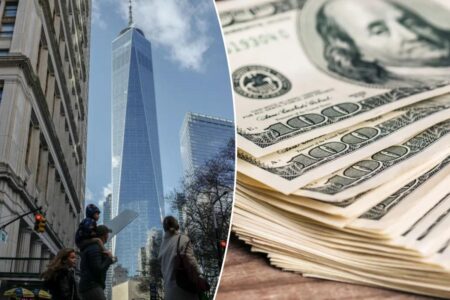As a professional shopping writer with more than five years of dedicated coverage of the holiday-sales season, I’ve seen the evolution of the question: “Are early Black Friday deals worth it?”
The short answer is yes — but not always, and not under all circumstances. Let’s cut to the chase: I’m diving right into what I’ve observed over those years, explaining the pros and cons of jumping into early deals versus waiting for the main event and offering up my exclusive tips for you to assess when an early sale is genuinely a bargain or simply a marketing ploy.
What are “early Black Friday deals?”
Traditionally, Black Friday in the U.S. referred to the day after Thanksgiving (for 2025 that’s Friday, Nov. 28). But over the last several years, major retailers have begun launching substantial discounts weeks — even a month! — in advance.
These “early Black Friday” or “pre-Black Friday” deals extend the shopping window, ease logistics for the retailer, and let them capture shoppers eager to secure items early. For example, one retailer has described this window as the “pre-Black Friday sale” and noted it’s often less chaotic than the full-scale event. When referencing “early Black Friday deals,” I’m referring to the promotions that many stores offer before the official date, sometimes as early as early November or even late October.
The case for shopping early
There are several compelling reasons why early Black Friday deals can be a smart strategy. First, inventory is often more plentiful. In my years covering these events, I’ve seen the biggest doorbuster deals on Black Friday itself sell out very quickly, often by the first hour online or the first few minutes in-store.
By contrast, earlier sales often provide more size, color and model options, which is especially relevant for items like clothing, shoes, electronics or home goods where variety matters.
Second, stress and competition are lower in the early window. If you’re shopping calmly and want to lock in certain items (for instance, home upgrades, gift lists or tech you’ve already evaluated), early deals allow you to buy with less frantic urgency.
Third, some early promotions genuinely offer deep savings, especially when retailers use them to kick off the holiday shopping season.
“More than half of consumers expect inventory shortages, driving that earlier shopping,” Amy Anderson, senior director of insights and strategy at consumer-led shopping platform LTK, exclusively shared with Post Wanted. “And consumers rely on creators to make in-stock recommendations. Product availability now ranks above price for holiday purchase decisions.”
The case against jumping in too early
But here’s where the nuance comes in. Not all early black Friday deals are equally valuable, and there are trade-offs. For one, in many cases, the deepest discounts remain reserved for the main event (or for very limited “doorbuster” flash promotions) on Black Friday or the extended weekend after.
Second, there is a risk of “false urgency.” For example, an item marked as “early black Friday” might look discounted, but without a reliable price history, you can’t always tell if it’s the best price of the season. That’s why we’re always combing through price histories and find the best deals.
Third, popular items (especially in clothing sizes, colors or highly desirable electronics) might still sell out before the main event’s restocks or improved pricing come online. If you’re very fixed on a specific variant (say, a size 8 women’s shoe in a sought-after style), early might guarantee you get it — but if you wait, you may risk missing stock.
How to assess whether an “early Black Friday deal” is truly a good deal
As a pro shopping writer, I’ve developed a checklist I use before recommending a deal to readers. Here are the criteria you should apply:
- Check historical pricing: You want to know if the discount is deeper than what the item typically sells for. Compare this “early” price to recent weeks or past holiday seasons (if available). If it’s only a modest markdown relative to the typical sale price, you may be able to wait.
- Consider the inventory and product version: If the item is the latest model (say, the newest smartphone or laptop), then jumping early might make sense because later in the season the same item may be discounted less or bundled differently. But if it’s a prior-year model, you could find better deals later. Also, check whether the variant you want (color, size, configuration) is still in stock.
- Look at the retailer’s timeline and competitor behavior: For 2025, we already know that retailers like Ulta Beauty have early deal promotions that change every few days. Retailer schedules can hint at whether early deals are “good” or are simply leading up to deeper offers later. For example, Best Buy has been running doorbusters every Friday starting October 31 ahead of its main Black Friday period. So, if you see a product discounted early but know there’s a ‘wave’ afterwards, you might hold off unless your need is urgent.
- Check return options and price-match policy: If you buy early, will the retailer allow a price adjustment if the item goes cheaper later? Is it final sale? These policies matter. Also check shipping and delivery windows; some early deals may deliver later in the holiday season, which might matter if you’re buying a gift.
- Use alerts and tracking tools: Set price-tracking alerts for the item you want, so you’ll know if that “early black Friday deal” turns out not to be the best. Many tools and browser extensions help here, like CamelCamelCamel. If the price drops further, you’ll still have the option to jump in.
Early shopping vs main event: a balanced strategy
Here’s one approach I’ve refined from years of coverage: If you have a must-have item (especially tech, big-ticket, high demand), consider buying early — provided you’ve done the checks above and are comfortable with potentially missing later extras (like bundles). On the other hand, if you’re browsing, flexible on brand/version, or buying typical sale items (clothing, accessories, some home goods), waiting for the main Black Friday window or even Cyber Monday may yield better deals.
In practice, that means for 2025 I’d suggest you scan early deals now, flag the ones worth buying, but also build a wishlist and be ready for late-November. Retailers such as Walmart and Amazon are explicitly structuring the season in phases.
Final thoughts: are early Black Friday deals worth it?
Yes — early Black Friday deals can absolutely be worth it. But their value depends on what you’re buying, how well you’ve done your research, and how much risk you’re willing to accept. For shoppers who want calm, availability and earlier access, early deals are a strong strategy. For hyper value-seekers willing to wait for doorbusters, the main event still holds significant appeal.
In short: treat early deals as opportunities, not guarantees. Use the tools, track the trends, know your product and price history, and you’ll be in a much stronger position. And remember: for Black Friday 2025 , the official date is Nov. 28 — but the shopping season has already begun. With the right mindset and plan, you can maximize value and avoid buyer’s remorse.
Happy shopping! May your early Black Friday deals be smart, and your Black Friday 2025 haul even smarter.
For over 200 years, the New York Post has been America’s go-to source for bold news, engaging stories, in-depth reporting, and now, insightful shopping guidance. We’re not just thorough reporters – we sift through mountains of information, test and compare products, and consult experts on any topics we aren’t already schooled specialists in to deliver useful, realistic product recommendations based on our extensive and hands-on analysis. Here at The Post, we’re known for being brutally honest – we clearly label partnership content, and whether we receive anything from affiliate links, so you always know where we stand. We routinely update content to reflect current research and expert advice, provide context (and wit) and ensure our links work. Please note that deals can expire, and all prices are subject to change.
Read the full article here

















